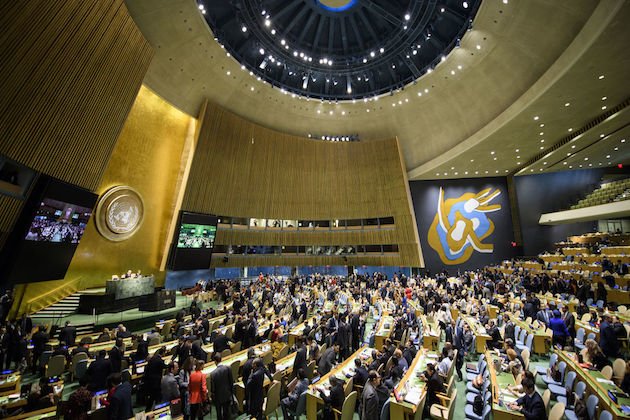Move FM Global News

St. Vincent and Grenadines wins seat at UN Security Council
Jun 9, 2019NEW YORK CITY, New York – A secret ballot was held by the United Nations General Assembly on Friday to elect five new countries to the UN Security Council.
In an historic occasion St. Vincent and the Grenadines was one of those five, becoming the smallest country to get a seat at arguably the world’s most important table. The tiny Caribbean nation in the British West Indies has a population of just over 110,000.
Other countries to become members of the Security Council were Estonia, Niger, Tunisia, and Vietnam.
The five States will take up their seats as non-permanent members of the Security Council in January 2020, replacing Cote d’Ivoire, Equatorial Guinea, Kuwait, Peru and Poland.
Every year, five countries are elected to the 15-member Council (10 of whom are non-permanent) for a two-year term, according to a geographical rotation set by the Assembly in 1963, to ensure fair regional representation: five from African and Asian and Pacific States; one from Eastern Europe; two from Latin American States; and two from Western European and Other States (WEOG).
Whilst Niger, Tunisia and Vietnam were elected unopposed, two of the five seats were contested: El Salvador competed with Saint Vincent and the Grenadines to represent the Latin American and Caribbean group; and Romania lost out to Estonia in the East European group.
Speaking to the press outside the General Assembly Hall, Ralph Gonsalves, Prime Minister of St. Vincent and the Grenadines, described the election of his multi-island nation of around 110,000 people, as a “historic occasion”.
Mr. Gonsalves added that the country is committed to the principle of sustainable development and, as a Small Island Developing State in danger of inundation by rising seas, is very concerned about the consequences of adverse climate change and intends to work very closely with the other members of the Security Council. The UN, he added, has limitations, but it also has “profound strengths.”
Following a 2014 General Assembly resolution, elections to the non-permanent Security Council seats were moved from October to June, to give incoming countries more time to prepare for their terms, before assuming their responsibilities.


